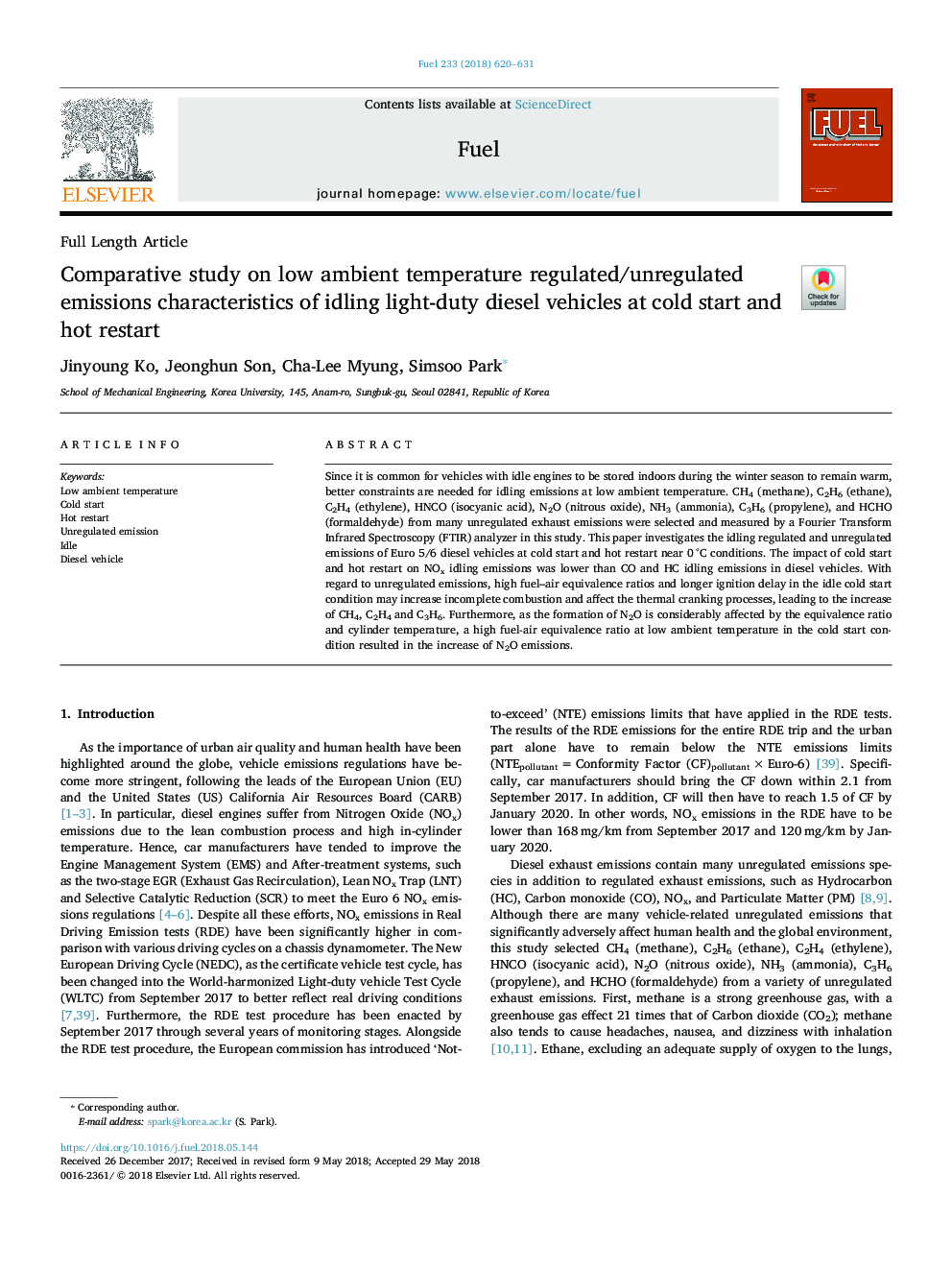| Article ID | Journal | Published Year | Pages | File Type |
|---|---|---|---|---|
| 6630281 | Fuel | 2018 | 12 Pages |
Abstract
Since it is common for vehicles with idle engines to be stored indoors during the winter season to remain warm, better constraints are needed for idling emissions at low ambient temperature. CH4 (methane), C2H6 (ethane), C2H4 (ethylene), HNCO (isocyanic acid), N2O (nitrous oxide), NH3 (ammonia), C3H6 (propylene), and HCHO (formaldehyde) from many unregulated exhaust emissions were selected and measured by a Fourier Transform Infrared Spectroscopy (FTIR) analyzer in this study. This paper investigates the idling regulated and unregulated emissions of Euro 5/6 diesel vehicles at cold start and hot restart near 0â¯Â°C conditions. The impact of cold start and hot restart on NOx idling emissions was lower than CO and HC idling emissions in diesel vehicles. With regard to unregulated emissions, high fuel-air equivalence ratios and longer ignition delay in the idle cold start condition may increase incomplete combustion and affect the thermal cranking processes, leading to the increase of CH4, C2H4 and C3H6. Furthermore, as the formation of N2O is considerably affected by the equivalence ratio and cylinder temperature, a high fuel-air equivalence ratio at low ambient temperature in the cold start condition resulted in the increase of N2O emissions.
Related Topics
Physical Sciences and Engineering
Chemical Engineering
Chemical Engineering (General)
Authors
Jinyoung Ko, Jeonghun Son, Cha-Lee Myung, Simsoo Park,
